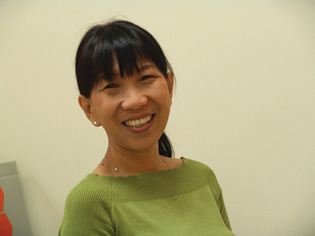Why Singapore’s English Teachers Should Embrace Singlish, Not Fight It
Is it time for Singaporean educators to embrace Singlish as a legitimate learning tool? What the Research […]
Read More
Lee Yim Ping is not your typical educator. To describe her career in education as remarkable would be an understatement. It all started with a willing heart, a questioning mind and a listening ear.
Yim Ping started off as a teacher in a junior college. Since then, she has taught at four schools (both secondary and pre-university) and served in at least three departments at the Ministry of Education (MOE).
 She has also obtained two Master’s degrees and a doctorate in education in the process.
She has also obtained two Master’s degrees and a doctorate in education in the process.
Currently seconded to NIE for the second time – the first was as a Teaching Fellow with the Math department – Yim Ping is now with the Centre for Research in Pedagogy and Practice.
More recently, she played a pivotal role as part of the team tasked to roll out MOE’s Teach Less, Learn More vision to schools, particularly in developing the Research Activist programme.
All these have given Yim Ping a unique perspective on learning and teaching, as well as the place of research in all of this.
A: In MOE, there are three tracks for an education officer: the Leadership Track and the Teaching Track, and a third called the Senior Specialist Track was created in 2000.
Officers on the Senior Specialist Track are expected to engage in educational research with a strong focus on application. We do translation research; this kind of research informs policy and teaching.
A number of researchers in NIE offered to take some of us onboard.
I work with Professor Lazar Stankov on a research project to examine how Singaporean students’ non-cognitive skills differ from students in other countries.
My role in research work is to ensure that the findings can inform learning and policy. I’m interested in understanding how schools attempt to use the findings to inform their school-based research or department curriculum projects.
– Lee Yim Ping, Centre of Research in Pedagogy and Practice
A: When I first started teaching, I had a principal who believed that if teachers want to be relevant and responsive to the learning needs of our students, it is important to have a deep understanding of how the learners view the way we work.
I learned a lot from him. His leadership showed me that everything is interconnected. I like to see how everything fits together. So when asked to do something new, I see it as something that would give me another perspective.
My years at MOE HQ also taught me the importance of having strong fundamentals as well as exposure on the ground. In policymaking, understanding the stakeholders is important – not just principals and teachers, but students as well.
A: Rather than how teaching has influenced the way I view research, I found that research has expanded my teaching horizon.
Research has helped me to be more reflective and critical in seeing the possibilities of improving learning and teaching. The writings of other education researchers and practitioners inspire as well as instruct me.
Through reading and doing research, I find affirmation that learning and teaching are dynamic in the way they shape the world of students and teachers.
– Yim Ping on the value of research
A: When the Curriculum Policy and Pedagogy Unit (CPPU) was established in 2006, we took on the Prime Minister’s vision at that time – Teach Less, Learn More (TLLM) – and tried to make meaning out of it. What does it mean to schools?
I was working with a group of “research activists”. They are teachers who were given protected time to examine the impact of their school curriculum projects. Through the school-based research, we hoped to build research literacy among schools.
The TLLM movement encourages top-down support with ground-up initiatives. Schools were invited to propose ways to enhance the curriculum, and there would be top-down support in terms of funding, training and consultation.
Findings could be based on a small sample. Schools can try out an innovation or a strategy and once they see what works, what doesn’t and what can be different, they could extend it to other classes, levels, or even other subjects.
A: What I learned from the research activist programme is that research has a place in teachers’ lives. It is not about teachers doing research from the beginning to the end but to take on roles that are meaningful to them.
Teachers bring with them “inside” knowledge of the school ecosystem. Their insights provide validation to data interpretation. They are the lens to help the researchers make sense and meaning out of the data and, together with the researcher, to plot future directions and recommendations.
A: When I was with CPPD, we encouraged schools to share their findings. We noticed that “teacher sharing” has a stronger traction with other teachers.
What researchers can do is to first understand what is important in the school so they will be able to match it. We need to identify areas that are important to the schools, policymakers and researchers.
Research knowledge belongs to both the academic researchers and the practitioners. Teachers also feel more empowered when they have opportunities to work in partnership with academic researchers. Together, they can create a synergy that will bring education to a higher plane.